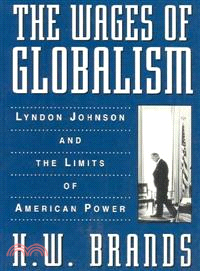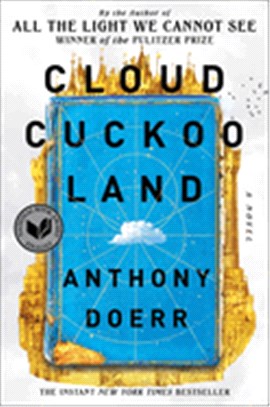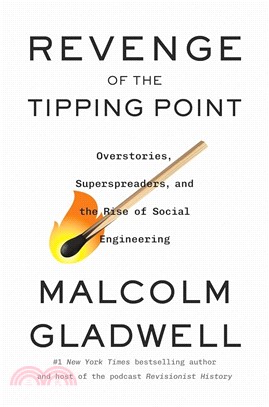The Wages of Globalism
商品資訊
ISBN13:9780195113778
替代書名:The Wages of Globalism
出版社:Oxford Univ Pr on Demand
作者:H. W. Brands
出版日:1997/04/24
裝訂:平裝
規格:24.1cm*16.5cm*1.9cm (高/寬/厚)
-
藍思閱讀分級: 1310L
定價
:NT$ 3724 元優惠價
:90 折 3352 元
無庫存,下單後進貨(到貨天數約30-45天)
下單可得紅利積點:100 點
商品簡介
作者簡介
相關商品
商品簡介
One episode dominates the memory of Lyndon Johnson's presidency: the Vietnam War. The war has so darkened Johnson's reputation that it is difficult for many to recall his policies in a positive light-- especially his foreign policy. Now historian H.W. Brands offers a fresh look at Johnson's handling of international relations, putting Vietnam in the context of the many crises he confronted and the outdated policies of global containment he was expected to uphold. The result is a fascinating portrait of a master politician at work, maneuvering through a series of successes that made his ultimate failure in Vietnam all the more tragic.
In The Wages of Globalism, Brands conducts a witty and insightful tour through LBJ's foreign policy--a tour that begins in Washington, runs through Santa Domingo, Nicosia, and Jakarta, and ends in Saigon. He opens with a thoughtful portrayal of the tense, often fruitful relationship between the domineering Johnson and his advisers--Dean Rusk, Robert McNamara, George Ball, Clark Clifford, Walt Rostow--as he picked up Kennedy's legacy and sought to make it his own. Leaving Vietnam for the end, Brands presents the various crises with all the force the White House felt at the time: the Dominican intervention, India impending famine and war with Pakistan, the coup against Sukarno in Indonesia, France's departure from NATO's unified command, the threat of fighting between Greece and Turkey over Cyprus, the Six Day War, and the worry that Germany might acquire nuclear weapons. In each, Brands captures the uncertainty in Washington and the conflicting advice that Johnson received. The picture that emerges is remarkably positive, revealing the president's ability to pick his way through fierce complexities. He forcefully stopped a war over Cyprus; handled de Gaulle with equanimity and skill; and--over the objections of all his advisers--intentionally delayed shipping grain to famine-threatened India, creating a real momentum for agricultural reform in that country that ultimately led to self-sufficiency. Only in Vietnam did Johnson's sure balance of determination and judgment break down: worried about his domestic program and the need to stand firm against aggression, he let his determination run away with him.
"In 1947," H.W. Brands writes, "Truman made a bad bargain with history." By the time Johnson inherited the White House, it had become painfully clear that America was no longer supreme in the world, able to prop up the status quo worldwide. In this fascinating, behind-the- scenes account, Brands shows how skillfully Johnson steered the nation into the new era--until, in Southeast Asia, politics and his own personality led him into the ultimate trap of the Truman Doctrine.
In The Wages of Globalism, Brands conducts a witty and insightful tour through LBJ's foreign policy--a tour that begins in Washington, runs through Santa Domingo, Nicosia, and Jakarta, and ends in Saigon. He opens with a thoughtful portrayal of the tense, often fruitful relationship between the domineering Johnson and his advisers--Dean Rusk, Robert McNamara, George Ball, Clark Clifford, Walt Rostow--as he picked up Kennedy's legacy and sought to make it his own. Leaving Vietnam for the end, Brands presents the various crises with all the force the White House felt at the time: the Dominican intervention, India impending famine and war with Pakistan, the coup against Sukarno in Indonesia, France's departure from NATO's unified command, the threat of fighting between Greece and Turkey over Cyprus, the Six Day War, and the worry that Germany might acquire nuclear weapons. In each, Brands captures the uncertainty in Washington and the conflicting advice that Johnson received. The picture that emerges is remarkably positive, revealing the president's ability to pick his way through fierce complexities. He forcefully stopped a war over Cyprus; handled de Gaulle with equanimity and skill; and--over the objections of all his advisers--intentionally delayed shipping grain to famine-threatened India, creating a real momentum for agricultural reform in that country that ultimately led to self-sufficiency. Only in Vietnam did Johnson's sure balance of determination and judgment break down: worried about his domestic program and the need to stand firm against aggression, he let his determination run away with him.
"In 1947," H.W. Brands writes, "Truman made a bad bargain with history." By the time Johnson inherited the White House, it had become painfully clear that America was no longer supreme in the world, able to prop up the status quo worldwide. In this fascinating, behind-the- scenes account, Brands shows how skillfully Johnson steered the nation into the new era--until, in Southeast Asia, politics and his own personality led him into the ultimate trap of the Truman Doctrine.
作者簡介
H.W. Brands is Professor of History, Texas A&M University. His books on American foriegn policy include The Devil We Knew, Bound to Empire, and Inside the Cold War.
主題書展
更多
主題書展
更多書展今日66折
您曾經瀏覽過的商品
購物須知
外文書商品之書封,為出版社提供之樣本。實際出貨商品,以出版社所提供之現有版本為主。部份書籍,因出版社供應狀況特殊,匯率將依實際狀況做調整。
無庫存之商品,在您完成訂單程序之後,將以空運的方式為你下單調貨。為了縮短等待的時間,建議您將外文書與其他商品分開下單,以獲得最快的取貨速度,平均調貨時間為1~2個月。
為了保護您的權益,「三民網路書店」提供會員七日商品鑑賞期(收到商品為起始日)。
若要辦理退貨,請在商品鑑賞期內寄回,且商品必須是全新狀態與完整包裝(商品、附件、發票、隨貨贈品等)否則恕不接受退貨。
























